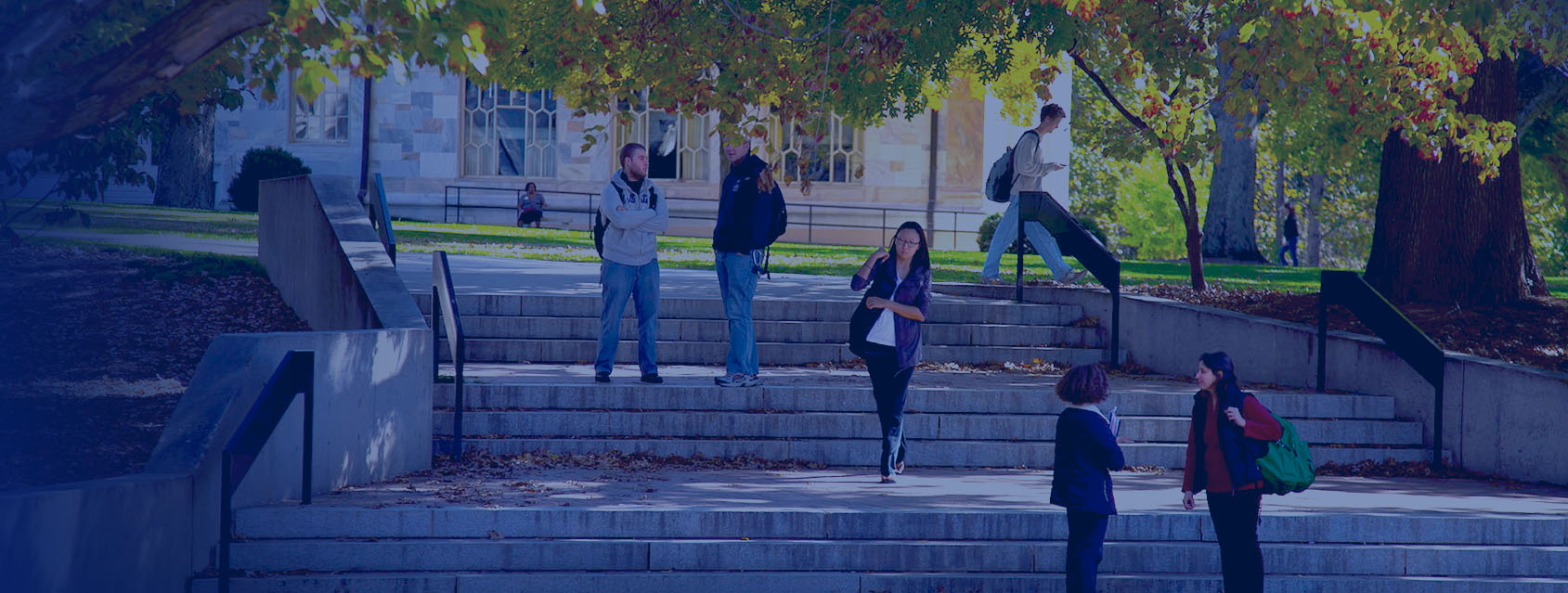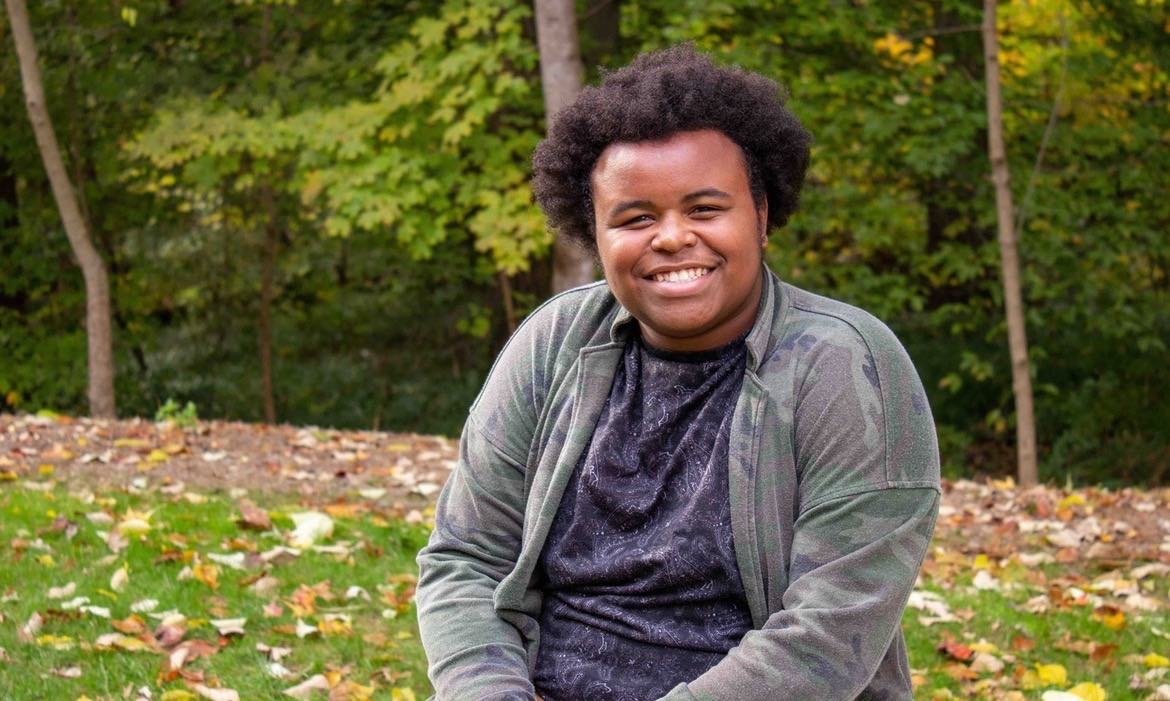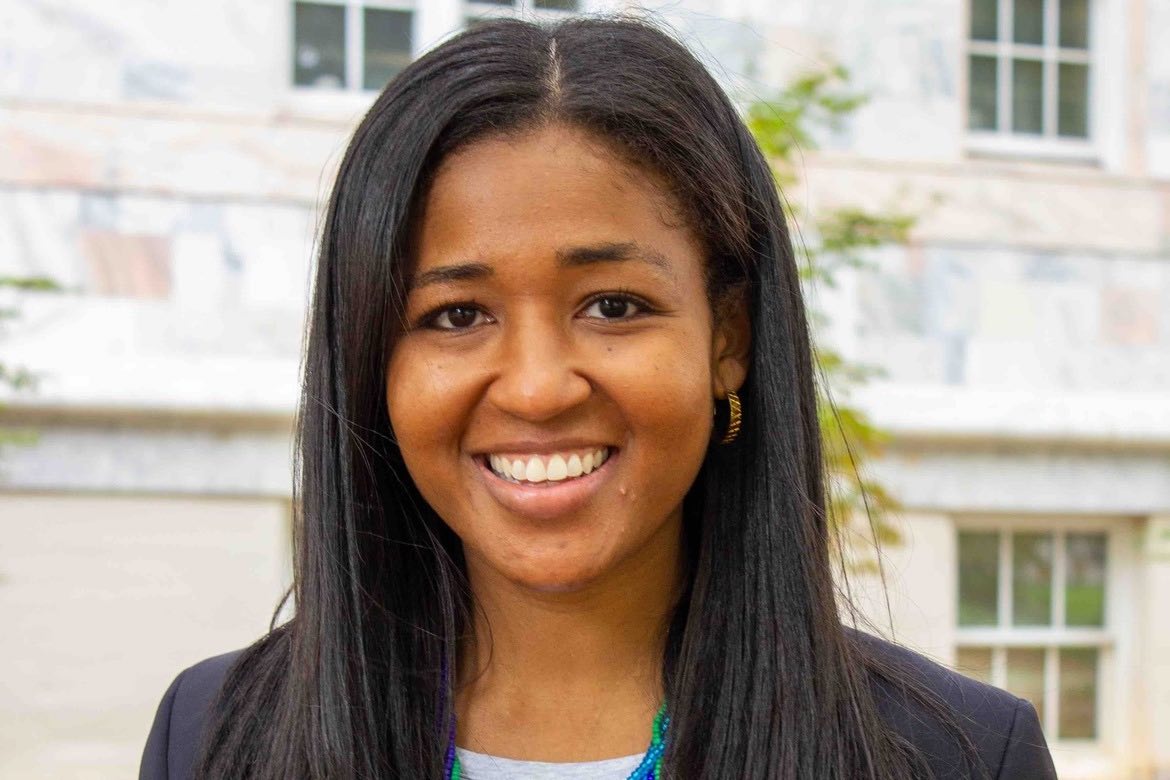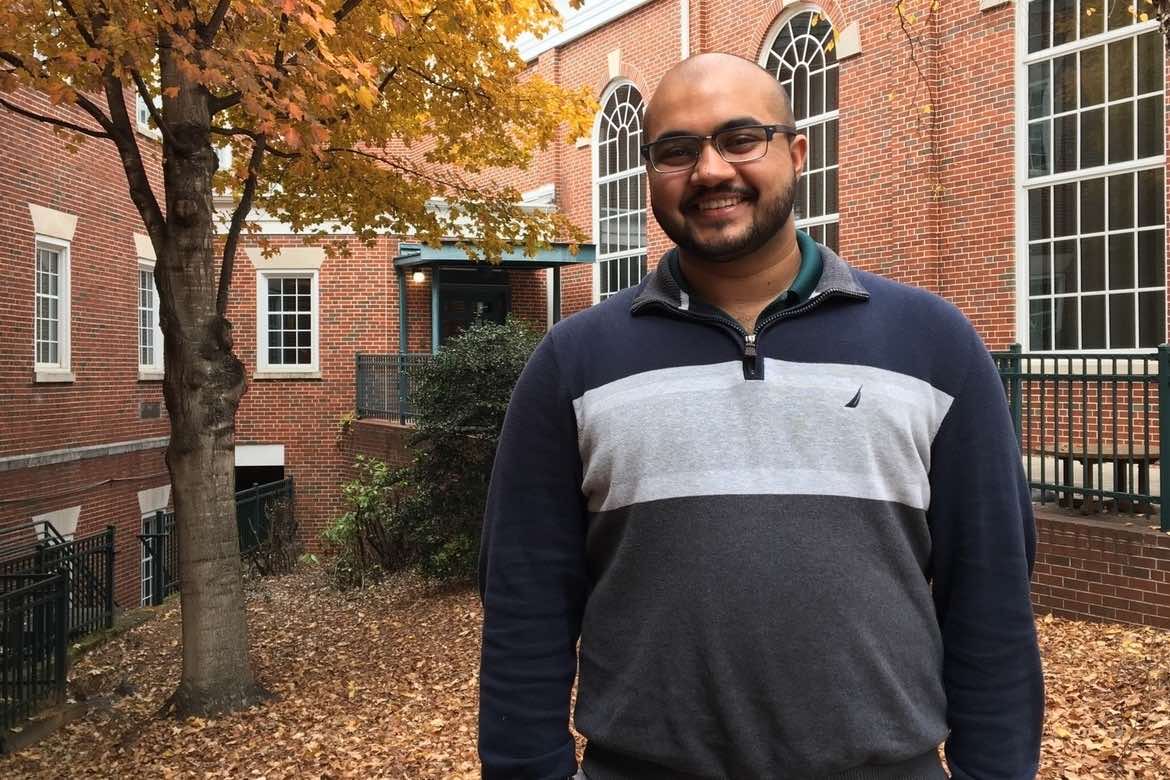
December 11, 2019
What happens “Behind Closed Doors” at Emory?
by Stephanie A. Reid, Contributing Writer
Matthew Nails can tell you. The sophomore biology and theater studies major serves as student staff in a residence hall. He’s seen Behind Closed Doors – and now he’s talking about it.
An annual training program, Behind Closed Doors is conducted prior to fall semester by the Office of Residence Life. The sessions prepare residence hall student staff like Nails – including sophomore advisors (SAs), resident advisors (RAs), and community advisors (CAs) – to assist residential students with many of the challenges typically encountered during the college years.
Office of Sorority and Fraternity Life student staff serving as community advisors and living in fraternity houses and sorority lodges also take the training, which includes roleplaying. As part of that training, Nails participated in a roleplay scenario in which he assisted a student, portrayed by another staff member, struggling to find a sense of belonging on campus.
Roleplaying to prepare for reality
An SA at the Longstreet-Means Residence Hall, Nails responded to the fictitious student’s emotional concerns by validating the student’s feelings, sharing his own personal experience, and offering advice and information on available campus resources.
 Although the situation was not real, Nails says it gave him real-world insight into the responsibility and capability of residential student staff to effectively address many of the challenges that students encounter. (Nails pictured on left. Photo: Erin Oquindo)
Although the situation was not real, Nails says it gave him real-world insight into the responsibility and capability of residential student staff to effectively address many of the challenges that students encounter. (Nails pictured on left. Photo: Erin Oquindo)
“It’s a reality check,” he said. “These are actual situations that people face every day.” Using staff and faculty volunteers as actors and facilitators, the program takes participants – this year more than 200 – through scenarios that they may encounter in their daily interactions with students.
Opening volunteer opportunities this year to staff and faculty outside Residence Life and Sorority and Fraternity Life has made the training program more inclusive and collaborative, according to Courtnay Oddman, Residence Life assistant director for training and development.
Training to help students address a range of challenges
During Behind Closed Doors training, residence hall student staff are participants and/or observers for 10 days in as many as 14 training scenarios developed by a committee of professional staff. The scenarios depict students challenged with academic concerns, roommate conflicts, food insecurity, hazing, domestic violence, sexual misconduct, and substance abuse.  The training also clarifies which situations – such as violence, suicidal ideations, and other critical issues – require referral to the university’s specialists trained to assist students who may be in urgent need.
The training also clarifies which situations – such as violence, suicidal ideations, and other critical issues – require referral to the university’s specialists trained to assist students who may be in urgent need.
With each scenario, the responding student staff member gets real-time feedback from professional staff and other facilitators on their handling of their roleplay situation. Although participants complete intensive training, they really don’t get put to the test until they are in actual situations, according to Oddman.
“It’s very different when you have a student right in front of you, and they are dealing with a challenging issue,” Oddman said.
“So, roleplay gives our student staff a great dress rehearsal for responding to real-life situations.” (Oddman pictured above. Photo: Erin Oquindo)
Exploring best practices with experienced professionals
Xavier Sayeed, an RA at Emory Bayit and senior music research and Jewish studies major who has gone through Behind Closed Doors for the last two years, welcomes feedback from professional staff.
“I think that is a big factor i n allowing us to feel more secure in how we handle situations because we have someone who has the credentials to tell us best practices, and we’re able to interact with them and ask questions,” said Sayeed (Sayeed pictured on left. Photo: JB Brown)
n allowing us to feel more secure in how we handle situations because we have someone who has the credentials to tell us best practices, and we’re able to interact with them and ask questions,” said Sayeed (Sayeed pictured on left. Photo: JB Brown)
Kacey Seidell, a former community coordinator at Longstreet-Means, has been through the program five times as an observer, respondent, and facilitator. He considers it one of the most “vital” parts of Residential Life training.
“It can be super nerve wracking but the nervousness goes away and allows you to really hone yourself and figure out the best way to handle specific situations,” said Seidell, a senior majoring in economics. “For that reason, I really do appreciate that Behind Closed Doors is a really useful tool for Residence Life training.”
Regular staff report that Behind Closed Doors has gone a long way in building student staff confidence. In addition, veteran student staff often cite the training program as highly influential in clarifying policies, campus partners, procedures, and best practices and protocols for responding to various circumstances.
“It’s really reassuring to know that our students feel confident that they have been trained well and sufficiently to handle the situations on their own,” Oddman said. “It better equips each of us to help ensure the best possible Emory experience for every residential student.”
Visit the Residence Life and Housing Operations website: https://housing.emory.edu/